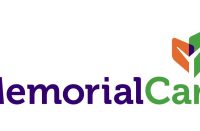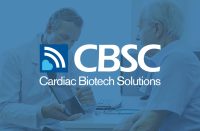Globe Health RSS FeedThis post was originally published on this site
SUNNYVALE, Calif., Oct. 28, 2024 (GLOBE NEWSWIRE) — BioCardia, Inc. [Nasdaq: BCDA], a global leader in cellular and cell-derived therapeutics for the treatment of cardiovascular and pulmonary diseases, announced today the completion of its last protocol specified follow-up visit in CardiAMP HF, a prospective, randomized, double-blinded, placebo procedure controlled, multi-center pivotal clinical trial for the treatment of heart failure of reduced ejection fraction (HFrEF).
The CardiAMP HF Trial is assessing the safety and effectiveness of the CardiAMP® Cell Therapy System for HFrEF, with the potential to reduce all cause death, future hospitalizations, enhance functional capacity, as well as improve symptoms and quality of life for HF patients. The study enrolled 115 advanced HF patients on guideline directed medical therapy (GDMT), who were randomized 3:2 to either the CardiAMP autologous cell therapy treatment arm or a procedure placebo control arm. Patients were enrolled in eighteen hospitals in the United States. The outcomes analysis of the randomized cohort will soon take place with primary effectiveness follow-up ranging from 12 to 24 months. CardiAMP HF also includes an open label roll-in cohort of ten patients, for a total of 125 patients.
HFrEF is an end-stage of ischemic heart disease, affecting over a million US patients and millions more worldwide. Despite advances in therapy for ischemic HFrEF, premature death, recurrent hospitalizations, and deteriorating quality-of-life remain a large burden to patients, their families, and healthcare systems worldwide.
The CardiAMP Cell Therapy System is an investigational device system that has received Breakthrough Device Designation from the FDA. The CardiAMP autologous cell therapy is delivered during a standard minimally invasive catheter-based procedure. Patients are typically discharged after an overnight stay. The cell therapy is designed to promote microvascular repair through enhanced capillary density and reduced fibrosis, both of which have been demonstrated in small and large animal models of disease.
“Phase I and II trial results and the interim Phase III trial results have shown trends toward patient benefit across most outcome measures. These results support our belief that the CardiAMP autologous, minimally invasive, cell therapy has great promise to provide a meaningful benefit for patients suffering from heart failure,” said Peter Altman, PhD, CEO of BioCardia. “We will soon complete data monitoring and then unblind the study to perform analysis for safety and effectiveness.”
Close out visits and data monitoring with source data verification to prepare for data lock are expected to be completed this quarter. Final data transfer to the independent Statistical Data Analysis Core at the University of Wisconsin is expected soon thereafter. Results are on track for top line release in the first quarter of 2025.
BioCardia has submitted the Annual Report for the CardiAMP Heart Failure Trial to FDA detailing plans for completing patient follow-up and intends to request a meeting with FDA to discuss the results with respect to approvability of the CardiAMP Cell Therapy System.
BioCardia also completed a supplementary submission to Japan Pharmaceutical and Medical Device Agency (PMDA) providing answers to PMDA’s previous responses on the approvability of the CardiAMP Cell Therapy System based on US data and requested a consultation. This PMDA consultation is scheduled to take place in late November as preparation for a subsequent clinical consultation with PMDA after results from the CardiAMP Heart Failure Trial are available.
About CardiAMP Cell Therapy
Granted FDA Breakthrough designation, CardiAMP Cell Therapy uses a patient’s own marrow cells delivered to the heart in a minimally invasive, catheter-based procedure to potentially stimulate the body’s natural healing response to increase capillary density, reduce tissue fibrosis, and ultimately treat microvascular dysfunction. The mechanisms that lead to microvascular dysfunction, including fibrotic, inflammatory, apoptotic, and endothelial autonomic dysfunction, are all targets of CardiAMP cell therapy, largely through production of growth factors, cytokines, chemokines, and other factors that directly counteract each of these mechanisms.
CardiAMP Cell Therapy incorporates three proprietary elements not previously utilized in investigational cardiac cell therapy: a pre-procedural cell population analysis for patient selection and treatment planning, a high target dosage of cells, and a proprietary delivery system that has been shown to be safer than other intramyocardial delivery systems and exponentially more successful in cell retention. Clinical development to date has shown trends towards enhanced patient survival, reduced major adverse cardiac events, and improved quality of life. The CardiAMP clinical development for heart failure is supported by the Maryland Stem Cell Research Fund and is reimbursed by Centers for Medicare and Medicaid Services (CMS) for both treatment and control procedures.
CAUTION – Limited by United States law to investigational use.
About BioCardia®
BioCardia, Inc., headquartered in Sunnyvale, California, is a global leader in cellular and cell-derived therapeutics for the treatment of cardiovascular and pulmonary disease. CardiAMP® autologous and CardiALLO™ allogeneic cell therapies are the Company’s biotherapeutic platforms with three cardiac clinical stage product candidates in development. These therapies are enabled by its Helix™ biotherapeutic delivery and Morph® vascular navigation product platforms.
Forward Looking Statements
This press release contains forward-looking statements that are subject to many risks and uncertainties. Forward-looking statements include, among other things, references to filings and communications with the FDA and Japan’s Pharmaceutical and Medical Device Agency, FDA and Japanese product clearances, the efficacy and safety of our products and therapies, regulatory timelines, and other statements regarding our intentions, beliefs, projections, outlook, analyses, or current expectations. Such risks and uncertainties include, among others, the inherent uncertainties associated with developing new products or technologies, regulatory approvals, unexpected expenditures, the ability to raise the additional funding needed to continue to pursue BioCardia’s business and product development plans, the ability to enter into licensing and partnering arrangements and overall market conditions.
We may use terms such as “believes,” “estimates,” “anticipates,” “expects,” “plans,” “intends,” “may,” “could,” “might,” “will,” “should,” “approximately” or other words that convey the uncertainty of future events or outcomes to identify these forward-looking statements. Although we believe that we have a reasonable basis for each forward-looking statement contained herein, we caution you that forward-looking statements are not guarantees of future performance and that our actual results may differ materially from the forward-looking statements contained in this press release. As a result of these factors, we cannot assure you that the forward-looking statements in this press release will prove to be accurate. Additional factors that could materially affect actual results can be found in BioCardia’s Form 10-K filed with the Securities and Exchange Commission on March 27, 2024, under the caption titled “Risk Factors,” and in our subsequently filed Quarterly Reports on Form 10-Q. BioCardia expressly disclaims any intent or obligation to update these forward-looking statements, except as required by law.







